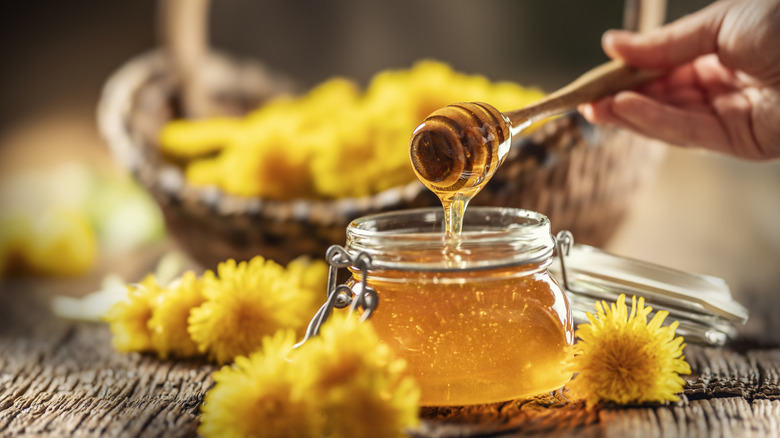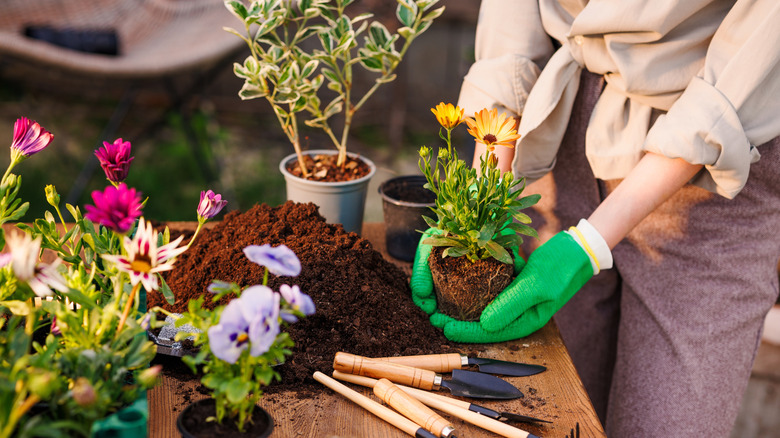Why You Should Be Adding Honey To The Soil In Your Garden
We usually think of honey as a pantry staple, not a garden essential. But this sweet, sticky substance can do more than flavor tea. It can protect roots, feed the soil, and give your plants an extra boost right where they need it most. In fact, a 2024 study in the International Journal of Plant Biology found that honey was able to increase growth in basil plants. Raw honey acts as a natural antiseptic and contains antifungal properties that protect plant roots from harmful microbes. When added to the soil, it creates a cleaner environment where roots can grow with less stress. Its natural sugars also help the soil retain moisture and support beneficial microbial activity in the root zone.
Along with protection, honey provides a nutritional boost via sugars. These sugars may provide energy that helps stimulate root growth and gives young plants a healthy start to life. Honey also contains phosphorus and potassium, two essential macronutrients, plus trace minerals like calcium, magnesium, iron, and zinc. It even works as a natural rooting hormone. When applied to cuttings, honey encourages early root development and helps protect against harmful bacteria in soil as new roots take hold.
Common mistakes to avoid when adding honey to your garden
Honey can benefit your garden, but only when used with care. One of the most common mistakes is applying it directly to plants without dilution. Always mix 1 to 2 tablespoons of honey into a gallon of warm water and mix until it fully dissolves. This simple step helps the solution spread more evenly and avoids unwanted sugar buildup. Once prepared, the mixture can be used as a plant mist to support nutrient absorption or poured at the base of plants to promote healthy roots and microbial life in the soil.
Honey works best when used in moderation. Rather than replacing your regular fertilizers, it should complement your existing routine. Using it every two to four weeks is enough to give your plants a gentle, consistent boost, while supporting the overall effect of the fertilizer on plant growth. It's also important to consider how honey might affect the wildlife in your garden. Using large amounts of honey near flowers can interfere with how bees search for food, since they're sensitive to strong sugar scents in the garden. To avoid interfering with pollinators, apply the solution carefully and steer clear of direct application around blooms. And don't forget that another way to get naturally healthy soil is to grow flowering perennials like comfrey.

